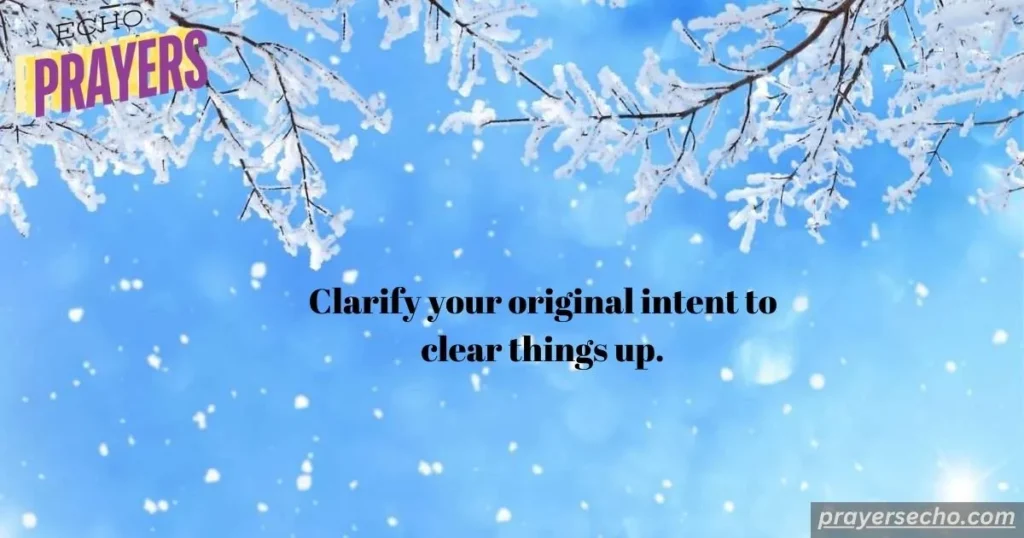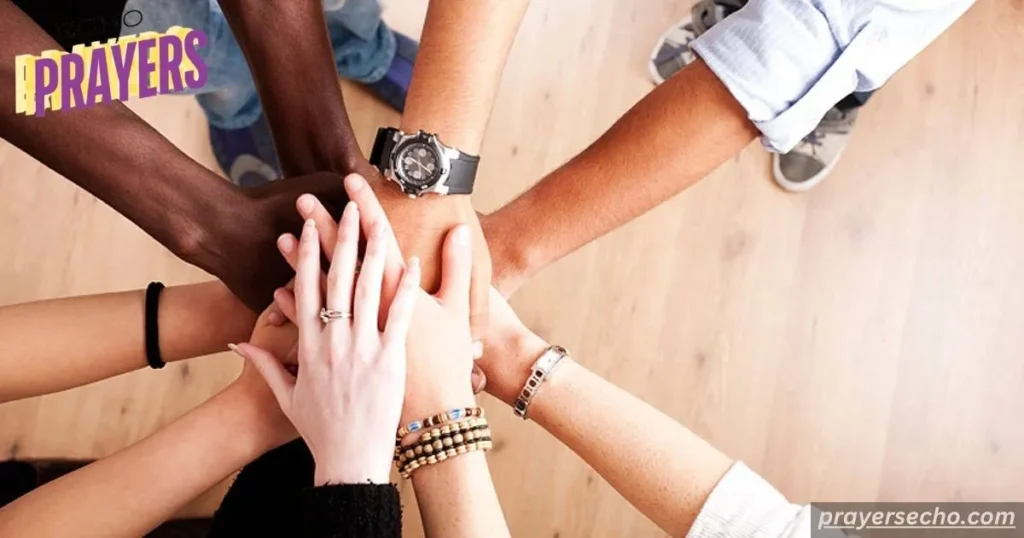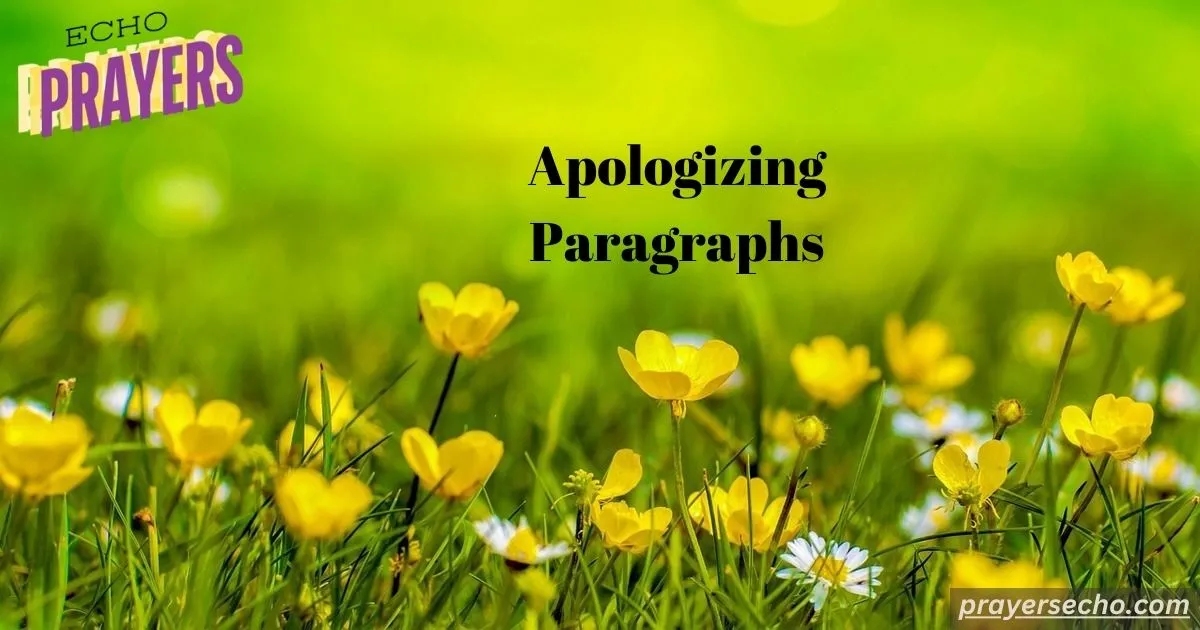“Sometimes, the right words can heal the deepest wounds.”
Apologies are a fundamental part of any relationship, whether personal or professional. We all make mistakes, but what matters most is how we address them. Crafting the perfect apologizing paragraph shows sincerity and helps mend broken trust. When you express regret in the right way, you are showing respect and empathy for the other person, which can repair even the most strained relationships.
Taking action through apologies is more than just saying, “I’m sorry.” It’s about acknowledging the hurt you caused, taking responsibility for your actions, and offering ways to improve. It’s important to express your feelings in a heartfelt manner, ensuring the other person knows you are committed to making things right. A sincere apology can go a long way in restoring peace and harmony.
In this blog, we will explore different apologizing paragraphs, from expressing regret to offering amends. You’ll also learn how to tailor your apologies for various situations, so that they are effective and meaningful. Whether you’re apologizing to a friend, partner, or colleague, these tips will guide you to say sorry in a way that strengthens your relationships
Apologizing for a Misunderstanding
- Acknowledge the misunderstanding clearly.
- Express genuine regret for any confusion.
- Clarify your original intent to clear things up.

- Encourage open dialogue to prevent future misunderstandings.
- Use “I” statements to take responsibility.
- Validate the other person’s feelings about the situation.
- Offer to discuss the matter further if needed.
- Maintain a calm and respectful tone.
- Avoid shifting blame to the other person.
- Suggest ways to improve communication moving forward.
- Share a personal experience related to misunderstandings.
- Reinforce your commitment to the relationship.
- Apologize face-to-face if possible for sincerity.
- Reiterate your willingness to listen and understand.
- Avoid defensiveness in your explanation.
- Provide a specific plan to avoid similar misunderstandings.
- Follow up to ensure the other person feels heard.
- Maintain a positive outlook on resolving the issue.

- Thank the person for their patience and understanding.
- Emphasize the value of clear communication in relationships.
Apologizing for a Late Response
- Acknowledge the delay in your response.
- Apologize for any inconvenience caused by your tardiness.
- Provide a brief explanation for the delay.
- Express appreciation for their understanding.
- Reiterate your commitment to timely communication in the future.
- Offer to answer any questions they may have.
- Validate their feelings about the delayed response.
- Keep your tone friendly and sincere.

- Suggest ways to ensure faster replies next time.
- Take responsibility without making excuses.
- Highlight the importance of their message to you.
- Reaffirm your willingness to engage in future conversations.
- If applicable, share the context of your busy schedule.
- Encourage continued dialogue regardless of the delay.
- Ensure you follow up on any pending matters discussed.
- Avoid using vague language about the delay.
- Offer a quick summary of the conversation if needed.
- Thank them for their patience and understanding.
- End on a positive note, expressing excitement for future communication.
- Keep communication lines open for future correspondence.
Apologizing After an Argument
- Acknowledge that the argument took place.
- Express regret for any hurt feelings caused.

- Take responsibility for your actions during the argument.
- Validate the other person’s perspective on the issue.
- Avoid using blame language in your apology.
- Share your feelings about the argument openly.
- Emphasize the importance of the relationship to you.
- Offer a sincere explanation of your behavior.
- Suggest ways to prevent similar arguments in the future.
- Reaffirm your commitment to understanding their point of view.
- Encourage open communication moving forward.
- Avoid rehashing the argument details unnecessarily.
- Take time to listen to their feelings post-argument.
- Reassure them that your feelings for them haven’t changed.
- Share your desire to work through the issue together.
- Offer a gesture of goodwill, like spending quality time together.
- Recognize the emotional impact of the argument.
- Suggest a cooling-off period if emotions are still high.
- Reiterate your commitment to resolving the conflict.
- End the conversation on a hopeful note for the future.

Apologizing for a Mistake at Work
- Acknowledge the mistake openly and honestly.
- Express regret for any negative impact caused.
- Take full responsibility for your actions.
- Provide a brief explanation of the mistake without excuses.
- Share the steps you plan to take to rectify the issue.
- Offer a solution to mitigate the consequences.
- Reassure your colleagues of your commitment to improvement.
- Maintain a professional tone throughout the apology.
- Invite feedback on how to handle similar situations better.
- Encourage open communication about workplace mistakes.
- Apologize in a timely manner to show accountability.
- Avoid downplaying the significance of the mistake.
- Thank your colleagues for their support and understanding.
- Share your plan for preventing future mistakes.
- Ensure you follow through on your promised actions.
- Reiterate your dedication to team goals.

- Remain accessible for any questions or concerns.
- Show appreciation for their patience as you correct the issue.
- Keep the focus on teamwork and collaboration.
- End on a positive note, emphasizing shared success.
Apologizing for Missing an Event
- Acknowledge that you missed the event.
- Express genuine regret for not being there.
- Provide a brief explanation for your absence.
- Validate their feelings about your absence.
- Emphasize the importance of the event to you.
- Offer to meet up or celebrate in a different way.
- Apologize for any disappointment caused.

- Share how much you were looking forward to attending.
- Reiterate your commitment to being present in the future.
- Suggest future plans to make up for the missed event.
- Avoid making excuses for your absence.
- Thank them for their understanding.
- Keep your tone sincere and heartfelt.
- Acknowledge the effort they put into the event.
- Encourage continued connection despite the missed opportunity.
- Offer to help with future events or gatherings.
- Reassure them of your interest in their activities.
- Share a positive memory related to the event if applicable.
- Maintain a positive outlook on your relationship moving forward.
- End with a hopeful note for future connections.
Apologizing Paragraphs (Prayers)
Apologizing for Being Rude
- Acknowledge the rude behavior directly.
- Express sincere regret for your actions.
- Take full responsibility without making excuses.
- Validate the other person’s feelings about your rudeness.
- Share your reasons for the behavior, if appropriate.
- Reassure them that it wasn’t your intention to offend.
- Offer a clear apology, emphasizing your regret.
- Suggest how you will change your behavior in the future.
- Encourage open dialogue about how your actions affected them.
- Avoid minimizing the impact of your rudeness.
- Thank them for their understanding and patience.
- Keep your tone sincere and humble.
- Share a commitment to being more considerate.

- Apologize in person if possible for added sincerity.
- Reiterate the value of your relationship to you.
- Offer a gesture of goodwill to show you care.
- Listen to their perspective on the situation.
- Ensure they feel heard and understood.
- Maintain a positive attitude towards moving forward.
- End on a note of appreciation for their forgiveness.
Answer the key Question
1. Why is it important to apologize?
Apologizing is essential because it acknowledges our mistakes and shows respect for others’ feelings. It helps to mend relationships and build trust.
2. How should I apologize if I’m unsure how the other person feels?
Start by expressing your regret and willingness to listen. Acknowledge that their feelings are valid, even if you are unsure of them, and invite them to share.
3. Is it better to apologize in person or through text?
Whenever possible, apologizing in person is more sincere and impactful. However, if distance or circumstances prevent it, a heartfelt text can also be effective.
4. What if the other person doesn’t accept my apology?
Respect their feelings and give them time. Sometimes, people need space to process their emotions. Continue to demonstrate your commitment to making amends.
5. Can I apologize too many times?
Apologizing repeatedly can sometimes feel insincere. It’s important to apologize genuinely once and then focus on actions that demonstrate your commitment to change.
Conclusion
Apologizing is an art that requires sincerity and thoughtfulness. Whether you’re addressing a misunderstanding, a mistake at work, or a personal conflict, the key is to express genuine regret and take responsibility for your actions. Effective apologies help heal wounds and strengthen relationships by showing empathy and a commitment to improvement.
By following the outlined strategies and crafting heartfelt paragraphs, you can navigate the delicate process of apologizing with confidence. Remember, an apology is not just about the words you say; it’s also about demonstrating your commitment to making things right in the future.

Hi! I’m Jane Austen, the admin of Prayers Echo, where we share uplifting prayers, spiritual reflections, and messages of hope. Join us as we echo faith and inspiration in every prayer.












